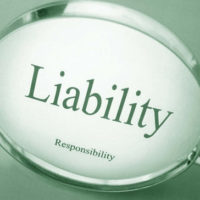Are Retailers Responsible for Criminal Activity on their Property?

Feeling safe in one’s community is important to the health and function of a society, and a big part of any community are the stores people frequent for goods and services. No one wants to shop at a place where their safety feels threatened, but some retail establishments are known for attracting a criminal element that puts everyone at risk. If a customer is injured on a store’s property during the commission of a crime, is the store legally responsible? The answer to this question is, it depends. Premises liability law does impose a duty on property owners to keep the area safe, but when the harm comes from third parties, liability is not so clear. Wal-Mart is facing growing calls from communities and organizations nationwide to rein in the serious crime problem present at numerous stores, threatening the safety of customers and employees. Groups are demanding one of America’s largest retailers hire more off-duty police and private security to combat the situation. Wal-Mart’s issue illustrates that even large and influential companies are not immune to outside pressure.
Visitor’s Status
To determine if the store has any liability for a third party crime, the first step is to determine the status of the injured party. Property owners are only bound to protect individuals that have permission or legitimate reasons for being on the premises. The law classifies visitors into three categories: invitees, licensees and trespassers. Invitees, those with express permission to be premises, are owed the highest level of care, and the property owner must ensure the premises are safe, and to fix or warn invitees of dangers the owner knew or should have known existed, including third party crimes. Invited licensees (social guests) are owed the same level of care, but uninvited licensees on the property for his/her convenience (e.g., stopping at a store for change) are owed much less. For these individuals, and for trespassers, the property owner is simply prohibited from willfully causing injury (i.e., setting traps), and there is no duty to guard against third party crime.
Was the Crime Foreseeable?
The next essential factor in assessing the liability of a store owner rests on how foreseeable the crime was. If the owner knew or should have known about a specific third party’s proclivity toward criminal activity, establishing foreseeability is easy. But, if the foreseeability of a crime comes from previous criminal acts, the more similar the earlier crimes were to the one that caused the injury, the more likely a court will see these crimes as providing enough information to foresee crime as an issue. Further, the previous crimes, to be foreseeable, need to occur on the premises. Off-premises crime will likely be deemed irrelevant by a court. Finally, the earlier crimes need to happen within the same time frame as the crime in the current case. If these crimes took place years apart, there is probably not enough connection to say the property owner should have foreseen the recent incident that led to an injury.
Talk to Personal Injury Lawyer
You should be able to trust that your safety is protected when shopping at a local business, but if your safety was compromised due to a property owner’s negligence, the owner may be legally responsible. Premises liability is a very complicated and fact-specific area of the law that requires the services of an experienced lawyer to effectively present a case. The Miami law firm of Pita Weber Del Prado has the skill and experience to put together a strong case. Contact us today for a free consultation on the merits of your case.
Resource:
bloomberg.com/news/articles/2016-12-07/wal-mart-crime-epidemic-comes-under-fire-from-labor-activists



